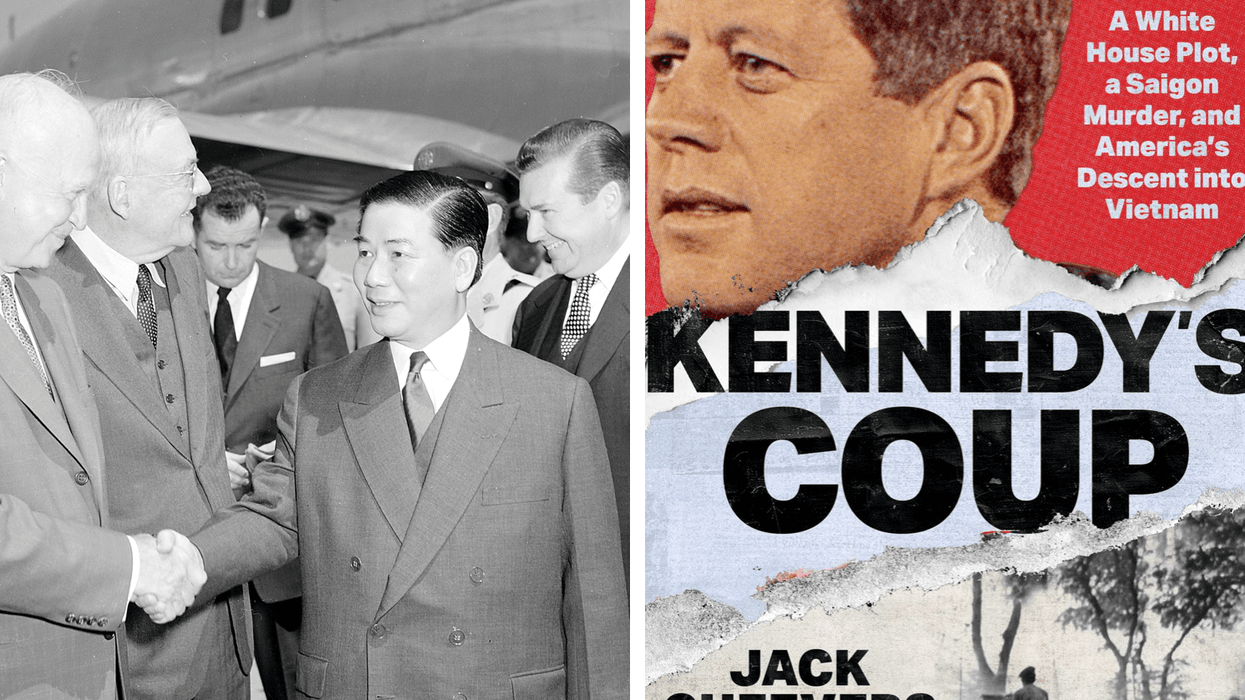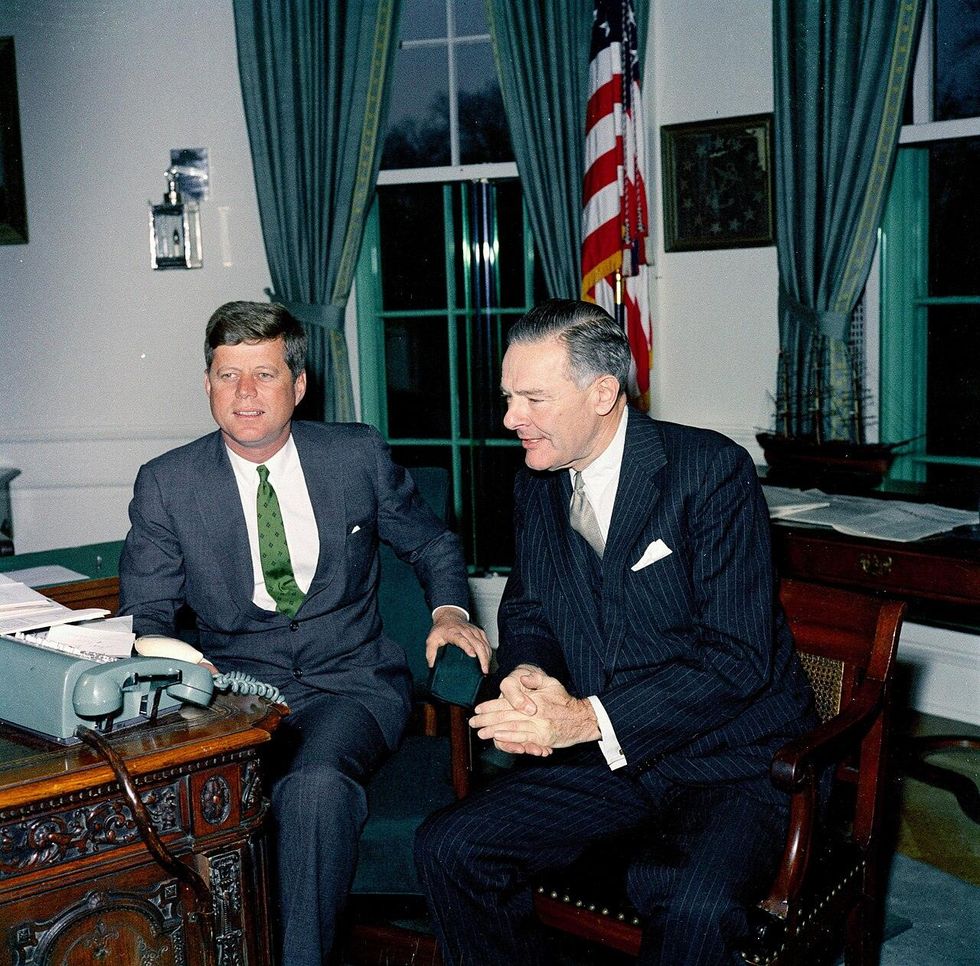With talks on restoring the Iran nuclear deal now grounded for over ten weeks, Tehran says it could be another ten weeks before it is ready to resume talking. That would be a mistake. Further stalling intended to increase Iran’s leverage could have the opposite effect of decreasing the perceived value of restoring the deal.
It may seem only fair and natural that newly elected President Ebrahim Raisi, who was sworn in on August 5, should take time to assess Iran’s position in the talks. After all, President Joe Biden took a few weeks to begin to try to carry out his election pledge to restore the Joint Comprehensive Plan of Action, or JCPOA. This was valuable time lost, and left Iranians mistrusting his intentions from the onset of his tenure.
There was sound bureaucratic reason for Biden to be cautious about embarking on a controversial Iran policy about which some key Democrats were ambivalent, including Senate Foreign Relations Committee Chairman Bob Menendez. While progressive Democrats urged Biden to quickly reenter the deal without preconditions, even Biden’s own fellow Delaware Democrat, Sen. Chris Coons said he would only support returning to the 2015 Iran nuclear deal if there were a path to limit Tehran’s missile program and support for regional proxies.
Biden needed to appoint key officials and get them confirmed by an evenly split Senate. Wendy Sherman was not confirmed as Deputy Secretary of State until April 13 (by a 56-42 vote) because of her role in negotiating the 2015 accord. And not until two weeks later was Colin Kahl confirmed as undersecretary of defense for policy, after Vice President Kamala cast a tie-breaking vote to bring the nomination to the floor of the Senate. Every Republican opposed Kahl because of his support for the JCPOA.
On February 18 — four weeks after Biden’s inauguration —the State Department said it was open to restarting discussions with the remaining parties to the JCPOA on the issue. It was then Iran that delayed talks, saying on February 27 that it was “not a good time for holding an unofficial meeting on the accord as proposed by the EU foreign policy chief, Josep Borrell.” No negotiation was needed, Foreign Ministry Spokesman Saeed Khatibzadeh added. Foreign Minister Javad Zarif on March 17 said a meeting was unnecessary because there was “nothing to talk about.” Iran’s position was that the United States should just first reverse President Donald Trump’s May 2018 withdrawal from the deal and overturn the sanctions he had imposed.
Although Washington was willing to reverse sanctions that were contrary to the JCPOA, plenty of details, including scope, sequencing and conditionality needed to be worked out. When Iran refused to engage in any room in which U.S. officials were present, Washington said it was willing to talk in “whatever format the Iranian government is comfortable with.”
The reasons for the delay in initiating diplomacy at the beginning of the year — and Tehran’s role in it — are important to understand in order to correct the false narrative prevalent in Iran that Biden deceitfully stalled. He did not delay in order to gain more leverage over Iran; he delayed in order to navigate treacherous political waters. Raisi, by contrast, has the benefit of having like-minded hardliners in charge of every pillar of governance in Iran. He seems to be purposely stalling.
While growing increasingly frustrated at the delay, Iran’s negotiating partners for the time being are giving Tehran the benefit of the doubt. Even though the ultimate decision-maker — Supreme Leader Ayatollah Ali Khamenei — has not changed, Iran’s government line-up has, so it is reasonable to allow some time. But the two to three months Foreign Minister Hossein Amir-Abdollahian says is needed to “settle in and plan” seems excessive on top of the two-and-a-half months that have already expired since the election.
If the issue is one of reciprocity, remember that Biden was ready for talks four weeks after his inauguration. The same four weeks have now elapsed since Raisi ascended to the presidency. Time is wasting.
On September 1, Amwaj media quoted a unnamed Iranian official as saying “it will not be too long” before talks in Vienna will resume. Sending this signal was a tactic to forestall censure by the IAEA Board of Governors at its September 13-17 meeting. The tactic might work this time, but just returning to the negotiating table will not be enough to stem the growing concerns about Iran’s nuclear intentions. Both sides will need to make compromises, as recommended by former Foreign Minister Javad Zarif, to get the JCPOA back on track.
As Iran delays, it continues to accumulate enriched uranium, operate advanced centrifuges, and in other ways enhance its ability to produce highly enriched uranium for a nuclear weapon were it to decide on this path. How much further progress has been made will be known next week when the IAEA releases its next quarterly report. It is likely to be stark.
The report will inspire new calculations on how close Iran is to “breakout — the time theoretically needed to produce a weapon’s worth of highly enriched uranium. Already in June, the Institute for Science and International Security estimated the breakout time to be as short as 2.3 months. This is similar to what the breakout time was before negotiations on what became the JCPOA started in earnest in 2013, when war to stop Iran’s program loomed as a distinct possibility. In those talks, Washington, and its partners achieved their goal of extending breakout to one year, a goal they now hope to restore.
Depending on assumptions and how one does the calculations, it may not be possible to get back to one-year breakout time, given the knowledge Iran has acquired in running advanced centrifuges and in producing uranium metal and uranium enriched to 60 percent, a short step below weapons-grade.
Twelve months is an arbitrary timeframe, its only value being in its commonality as a measurement. For non-proliferation purposes, there is no significant difference between 12 months, and say, 11 months. A breakout time of six months would be a reasonable criterion, as long as states were reasonably sure that breakout would be detected in time to employ counter-measures. Iran’s most determined adversaries can surely carry out kinetic counter-measures very quickly if need be.
The issue is not breakout, however; it is “sneak out.” Breakout time is calculated based on the capabilities of reported facilities and thus easily detected. Sneak out means using secret facilities to build nuclear weapons. Which path a small state with a massive military disadvantage would take is obvious.
More important than the breakout time, therefore, is the ability to detect sneak out. In addition to national intelligence means, the inspection tools of the International Atomic Energy Agency (IAEA) must be as powerful as possible.
It is alarming that, as well as surpassing the enrichment limits of the JCPOA, Iran has also abandoned the additional verification measures in the deal. Although Iran continues to allow IAEA inspections as required by its normal safeguards agreement, it is no longer going beyond this. For example, the JCPOA grants inspectors the right to monitor the production of centrifuge components. The video cameras used for this monitoring have not been turned off, but the IAEA has been denied access to them, including to review footage and replace batteries, since February 23. Without such access, inspectors will not know if centrifuges have been taken away, to be used, say, in secret facilities.
Restoring the IAEA verification rights is reason alone for concerned states to restore the JCPOA. Patience is still warranted before anyone should decide that diplomacy has had its day and that the time has come for other measures to stop Iran’s advancement. But Iran’s delay is gradually tipping the scales in a dangerous direction.
In his meeting with Israeli PM Naftali Bennet on August 27, Biden said he was committed to Iran never obtaining a nuclear weapon and that while the United States put “diplomacy first,” if that fails, the United States was “ready to turn to other options.” In simple Hebrew, Biden said “there is now a military option on the table.” His words were intended as reassurance for Israel and as a caution to Iran. They also reflected frustration that diplomacy may indeed fail. Bennett talked of Israel’s own strategy of dealing with Iran through “death by a thousand cuts.” This probably means an escalation of the kind of sabotage, assassination, intelligence operations and military action that Israel has already employed, with no lasting success in limiting Iran’s nuclear build-up. The JCPOA did far better in rolling back progress — peacefully and without violating Iran’s sovereignty. All parties will be better off if it is restored.





 President John F. Kennedy and Henry Cabot Lodge Jr. in 1961. (Robert Knudsen/White House Photo)
President John F. Kennedy and Henry Cabot Lodge Jr. in 1961. (Robert Knudsen/White House Photo)










